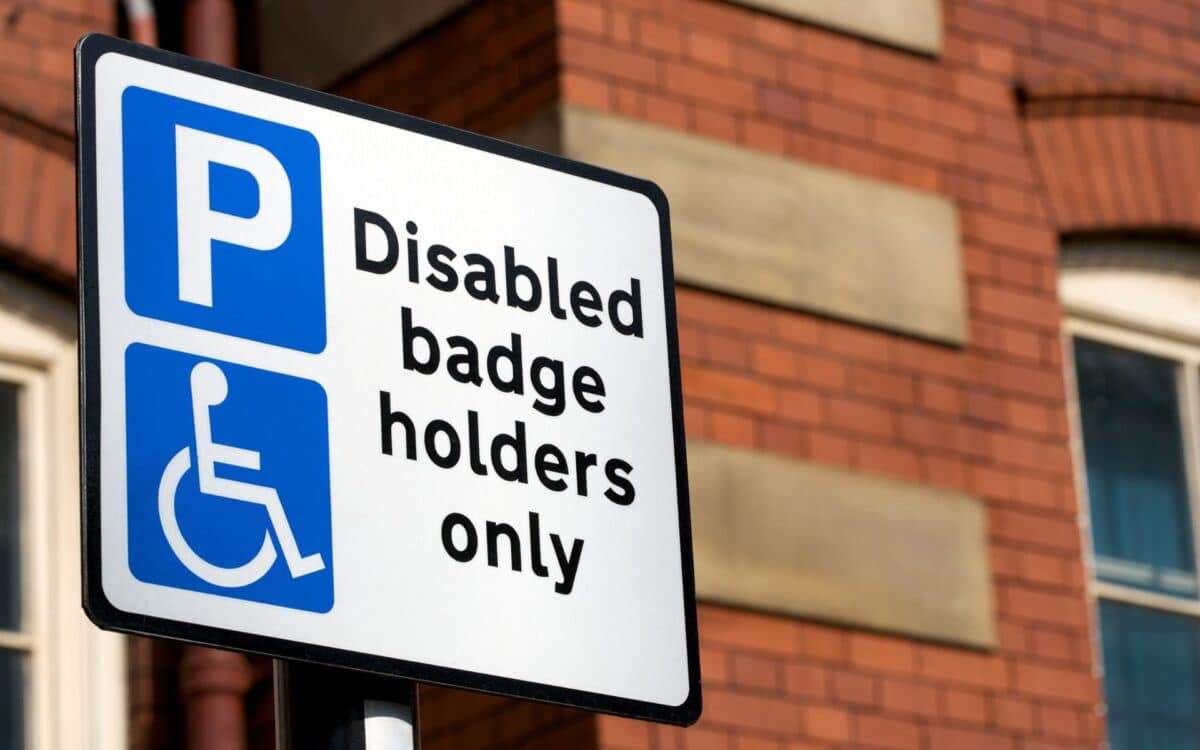The Blue Badge scheme in the UK provides parking benefits to individuals with long-term disabilities or conditions that limit their ability to walk safely or independently.
It grants access to designated parking spaces and may include exemptions from standard parking rules, whether the individual is a driver or passenger. Despite these provisions, a significant number of eligible people have not applied.
According to DevonLive, the scheme also includes those with non-visible conditions such as autism or dementia, broadening the scope of eligibility. The Blue Badge continues to be a subject of discussion as awareness of its potential reach remains uneven.
Who the Blue Badge Is For
The scheme covers people with physical disabilities and long-term health conditions that impact walking safety. This includes those living with conditions such as dementia, autism, or Parkinson’s disease.
According to UK government guidance, both visible and hidden disabilities are considered in eligibility assessments.
Temporary conditions can also, in certain cases, lead to eligibility. In response to a written parliamentary question by Liberal Democrat MP Will Forster, Roads Minister Lilian Greenwood stated:
“The Blue Badge scheme is primarily about helping people with a long-term disability that affects their capacity to access the goods and services they need to use.
Anyone may be entitled to a badge if they meet the eligibility criteria.”“The Department for Transport has previously issued local authorities with advice on how they could use existing powers to provide locally determined parking concessions within their areas.
For example, some local authorities grant parking concessions to assist their elderly residents. The same powers could be used to help those with temporary disabilities.”
These guidelines are outlined in the official GOV.UK document titled “People with severe temporary impairments: advice to local authorities.”
Over 3.2 Million Holders—and Growing
There are currently over 3.2 million Blue Badge holders in the UK. Despite the size of the scheme, eligibility is often misunderstood or underestimated by those who may qualify.
You will automatically qualify for a Blue Badge if you:
- Receive 8 points or more in the “moving around” section of PIP (Personal Independence Payment)
- Receive 12 points in the “planning and following a journey” section of PIP
- Get the higher mobility component of DLA (Disability Living Allowance)
- Receive the higher mobility rate of Child Disability Payment
- Get Adult Disability Payment (ADP) with the enhanced mobility rate or meet the same point thresholds
- Are registered as severely sight impaired
- Receive the War Pensioners’ Mobility Supplement
- Have received a lump sum compensation (tariffs 1 to 8) under the Armed Forces Compensation Scheme and have a permanent disability
- Are under 16 and have a letter confirming your eligibility from your visual impairment care team
- Are appealing a PIP decision and were previously receiving the higher mobility rate of DLA
Other Ways You May Qualify
If you do not meet the automatic criteria, you may still be eligible if you:
- Are unable to walk at all, or have a substantial and long-term disability (at least 12 months) that severely restricts your ability to walk
- Have a disability in both arms that prevents you from using parking meters
- Live with a mental health condition that limits your awareness of traffic danger
- Are responsible for a child under 3 years old who:
- Requires frequent access to medical care near a vehicle
- Uses bulky medical equipment that cannot easily be carried
How to Apply for a Blue Badge
Applications are submitted online via GOV.UK and are processed by your local council. You’ll need:
- A passport-style digital photo
- Proof of identity (e.g. birth certificate, passport, or driving licence)
- Proof of address (e.g. council tax bill, government letter, or electoral register check)
- Proof of benefits, if applicable
- Your National Insurance number
- Details of your current Blue Badge (if renewing)
Apply here: gov.uk
Fees and Processing Times
- Cost: Up to £10 in England, £20 in Scotland, and free in Wales
- Processing time: Applications are typically reviewed within 12 weeks
- Delivery: Once approved, the badge usually arrives within 10 working days
Your local council is required to explain why your request was denied. If you feel they overlooked relevant information, you can request a reconsideration. You may also reapply if your condition changes or deteriorates.









